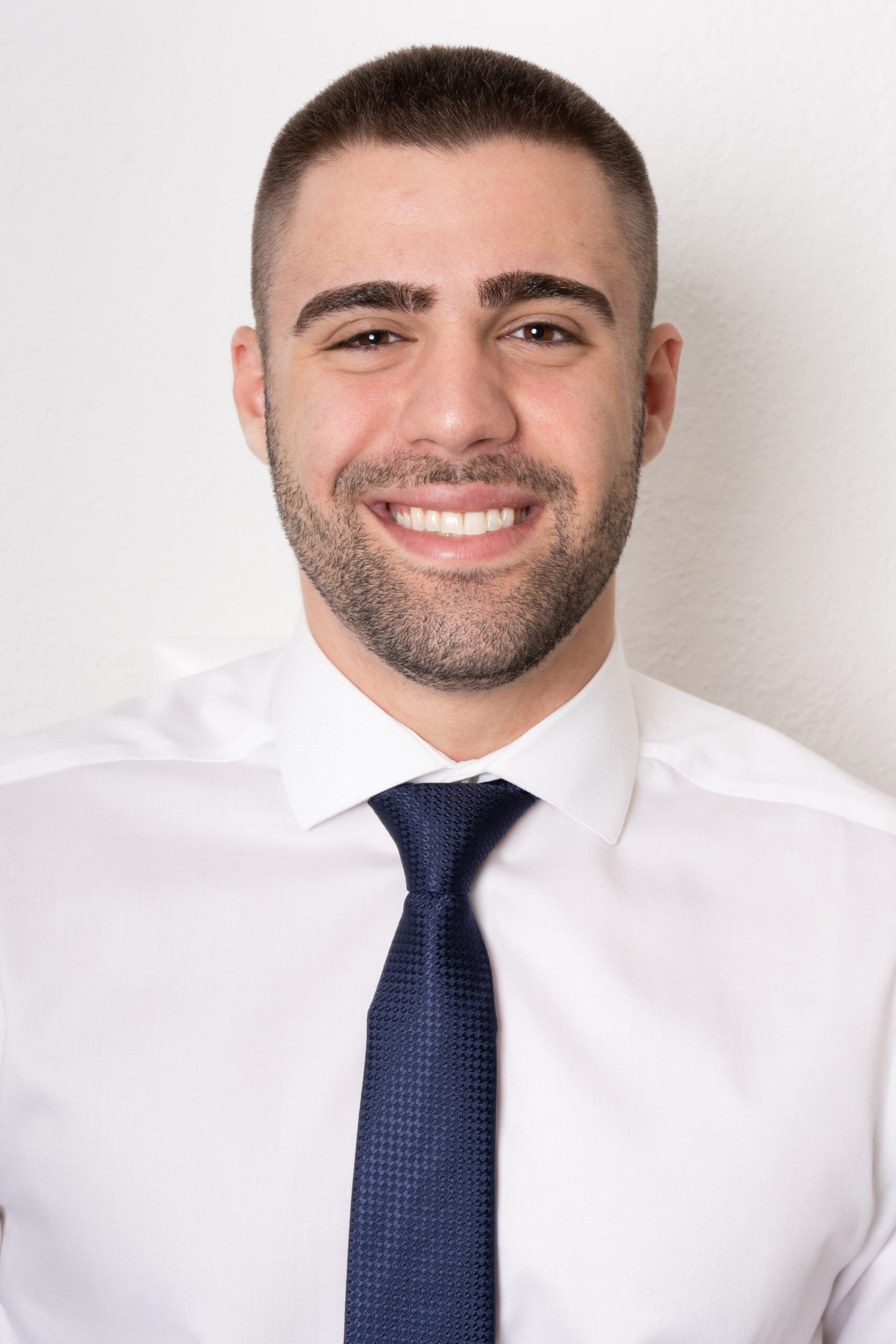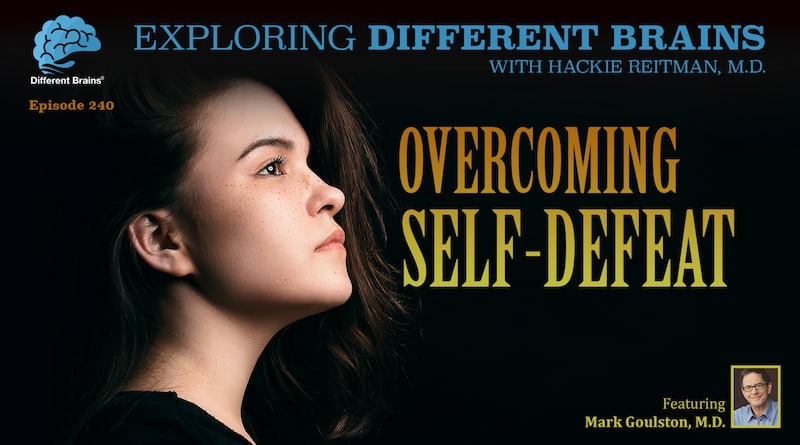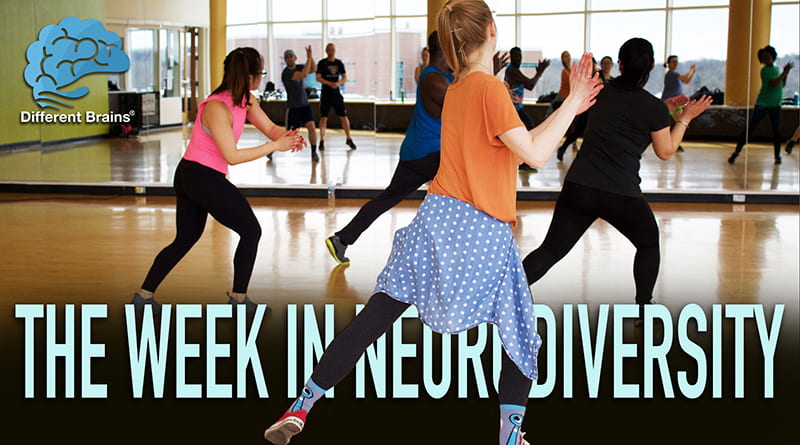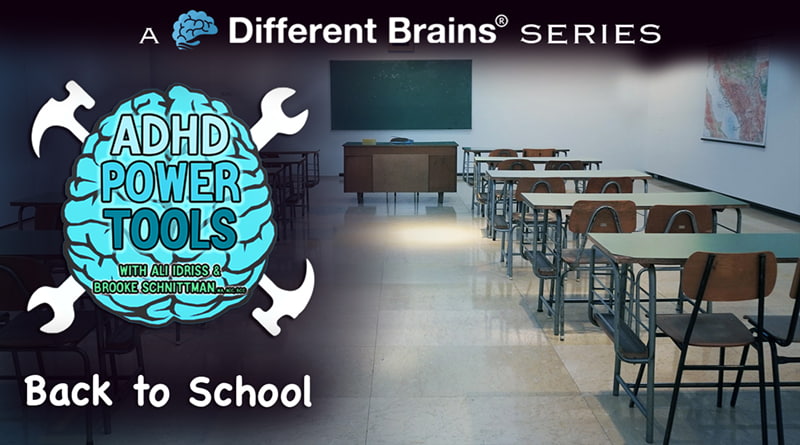Taking Things Personally | ADHD Power Tools w/ Ali Idriss & Brooke Schnittman

In this episode of ADHD Power Tools, Ali and Brooke discuss tools for taking things personally!
Brooke Schnittman, MA, ACC, BCC is a certified coach who works with children, students, teens, adults, and parents with or without ADHD. She has been nominated for multiple awards including “Best In Show Community” and ”Advocating For Another.” She is the creator of What’s Next and ADHDEdCamp.
Ali Idriss is a Different Brains intern and ADHD self-advocate. He aspires to share his journey and help others with the tools that have allowed him to overcome many of the challenges along the way, as he co-hosts ADHD Power Tools and conducts research on college students with ADHD. Ali has completed his bachelor’s in Biological Sciences at Florida Atlantic University and is currently completing his second bachelor’s in Neuroscience and Behavior at Florida Atlantic University. He is also an Emergency Medical Technician and is aspiring to become a physician
For more on Brooke and her work, visit: https://www.coachingwithbrooke.com/
EPISODE TRANSCRIPT:
ALI IDRISS (AI): Hello, everybody, welcome back to ADHD Power Tools. Today, Brooke, I want to ask you, what are some tools you can give us for us, ADHD-ers to stop taking things personally?
BROOKE SCHNITTMAN (BS): I don’t take things personally. Never. Never have I ever. So yes, with ADHD, we can be pretty empathetic, which can help and hurt us at the same time. And very, very sensitive. Rejection sensitivity is real, with adults with ADHD. And on top of that, just in general, most of our thoughts are negative. So you put those things together. And now when people say something that might not land well with you, we might take it personally. So how many times have you been confused, you know, where someone says something and you think that it’s about you or you did something wrong, or maybe they’re in a bad mood, and you think that you’ve done something to impact them, but it has literally nothing to do with you? I know, this happens to me all the time, especially when my husband as I’m with him the most. So, there’s a lot of reasons why this happens. Besides the things that I mentioned, a lot of it can be based on, you know, like past experiences, perhaps you’ve had a traumatic event or, you know, been bullied or whatever, you know, we can be bringing the past into the present. And just assuming and projecting that there’s an issue when really, there might not be any issue. So when something like that occurs, you can ask yourself, like, what are the facts? And what story am I telling myself, and just separate the past, from the current and the future? Another thing is to consider the source. So sometimes we take everyone’s opinion, too sensitive, but really, like, Who is this person? Is this person that you agree with? Like someone that you agree with their values? And, you know, is this someone that you actually value as a person? Or is it not so someone might say something off the cuff that might offend you, but you don’t really value their opinion. So you might not need to take it so personally, and dig deep on that, when it’s someone that you don’t value.
Another thing is, you know, children with ADHD, and children in general, are egocentric. But as you get older, you’re not as egocentric. But very often we think about ourselves. So we can be extremely sensitive to what other people think and say, when, in fact, it’s usually not about us that they’re talking about. So ask yourself, Is this even about me, like do I know this is about me? Unless the person tells you that it’s your fault for them feeling a certain way, or it’s about you, then you don’t know for sure if it actually is about you. So we might exacerbate the situation further for ourselves when it’s really not about ourselves. Another thing is to evaluate the evidence, again, I said distinguish between the facts and the story. Ask yourself what do I know to be true about what happened or what was said? Another thing is as ADHD-ers, we can ruminate on thoughts. So ways to interrupt the rumination is to take a rubber band, snap it on your wrist, change your environments, or go to a different room, maybe go outside, walk, grab some water, dance, listen to music, laugh, talk to someone who can make you laugh, watch some comedy, all of those things can help interrupts those negative thoughts that I said that so many people have and can spiral about. With what we said previously about, like, you know, do we even care about the source that much? Like, should we care? You know, choose your circle wisely. You are the average of the five people you spend the most time with. So if you’re limiting your time to people that you actually care and value their opinions, you know, you’ll be able to be treated the way that you want. And then you won’t be as caring about other people. All who might put you down who, you know, aren’t in your circle.
Also, I know it’s hard to grasp this, but our opinion matters, right? So, like, if someone gives us constructive feedback, it’s important to think about that and say, You know what the person said, can that help me develop as a person? Or do I want to filter that out and not really care about that? So sometimes, you know, when people talk, it’s constructive criticism. And we might have a hard time with constructive criticism. But if we care about personal development, and so on, and so forth. And we know and feel competent with our strengths and values, I can go back to that. We can have a growth mindset and say, Okay, I have all these wonderful qualities about me, I have these values, I have the strengths, I have these passions. And what they’re saying to me isn’t infringing on my values. And it’s only going to help me be a better person.
AI: So yeah, you make out you make a lot of important points broken, you give us a lot of important tools. Whenever I think of techniques personally, because I do I think we know many of us, ADHD-ers are subject to taking things personally, all the time with friends and family. And I always try to ask myself, Is this worry real? Or is my mind just looking for something to grab on to? Right? And I got that question from a book called inward by Young Pueblo. And I recommend this book called inward, so many people out there, the book kind of explores the movement from self-love to unconditional love, the power of letting go, which is super important when we take things personally. And the wisdom that comes when we truly try to know ourselves. In this book is just every single page has a quote a saying, a daily affirmation, I like to I like to say that really just hits that it just makes makes total sense. And I found it online. And I was just going you know how Google gives you the free, you know, first 30-50 pages, I was reading through all that. And I finished and I was like, Darn it, my sister’s birthday soon. So I just ended up buying it for my sister’s birthday. And I always sneak upstairs to go through and go through it. So it’s kind of like my own gift by her gift. And I think it’s it’s has a lot of important points that bring up and talk about sometimes deeper mental clarity is preceded by great internal storms. Sometimes we’re going to fall into that, you know, analysis paralysis, we’re going to take things personally. But that that’s that internal storm I bring up. That is the future of deeper mental clarity coming, it’s important to understand that you want to understand that it’s it’s you don’t need to change the past because it made you who you are today you bring up the past broke, which is super important that source, you only want to learn from it and live in a new way, right. So in a real sign of progress is when we’re no longer punishing ourselves for our imperfections.
So whenever you start seeing that when you don’t punish yourself for infections, you know, you’ve reached progress. And I think these are all small little sayings that come from the book and word by Young Pueblo. He also has another book called Clarity and connection. And I was staying though there were some my classmates, and it’s newer classmates, I just met them and they they brought all their friends over and they were talking about how they have a group chat. And they were talking about how they send each other daily affirmations every day. I think it’s super important to build that confidence and send each other daily affirmations just a little reminder. Because sometimes we take things personally when we shouldn’t be, but sometimes we do and we should accept the constructive criticism, which you bring up as well. So I think surrounding yourself with the right people, you know, those groups are self-affirmations. And we ruminate. And sometimes we need to interrupt that rumination, go for a workout, release that stress that static energy on top of your shoulders, release it. And sometimes you just need to go and change your surroundings your setting. Talk to someone and just switch it up. Just stir up the pot a little bit.
BS: Yeah. And I also want to — those are amazing recommendations in Word. I’m gonna look that up for sure. I haven’t read it. I’m gonna add it to my list and put it on my shelf. And hopefully, I’ll finish the book with all my other books.
AI: Each page, you know, all you got to do is read a page a day or you can read like five in less than a minute. So yeah, go ahead.
BS: Exactly. But I want to just clarify like our past builds who we are today, but we’re not always in my opinion, our past Because we can be whoever we want to be, you know, we could be our future, we could be our present. But if we live in the past, we get stuck in the past. So I think that our past is the foundation of what we are today. And they can influence our decisions and our thought processes. But I try so hard personally, to not live in my past. So much, especially, you know, the mistakes that I made, or they experienced the negative experiences that I’ve had, so I just wanted to share that too.
AI: Yeah, um, each kind of learn from it and live in a new way, right. Grow into you know, just learn, learn as much as you can from it. Yeah, I agree with that. 100%.
BS: Exactly. And I love the positive affirmations that you have in your support groups. For your study support groups, I think that you know, talking about like, you know, what we’re grateful for and rewarding ourselves for the small little things that we get done will all increase our way that we view ourselves. So, when negative when information is brought our way that we might have perceived negatively, it won’t hold as much weight.
AI: 100%

Ali Idriss is a Different Brains intern and ADHD self-advocate. He aspires to share his journey and help others with the tools that have allowed him to overcome many of the challenges along the way, as he co-hosts ADHD Power Tools and conducts research on college students with ADHD. Ali has completed his bachelor’s in Biological Sciences at Florida Atlantic University and is currently completing his second bachelor’s in Neuroscience and Behavior at Florida Atlantic University. He is also an Emergency Medical Technician and is aspiring to become a physician.




